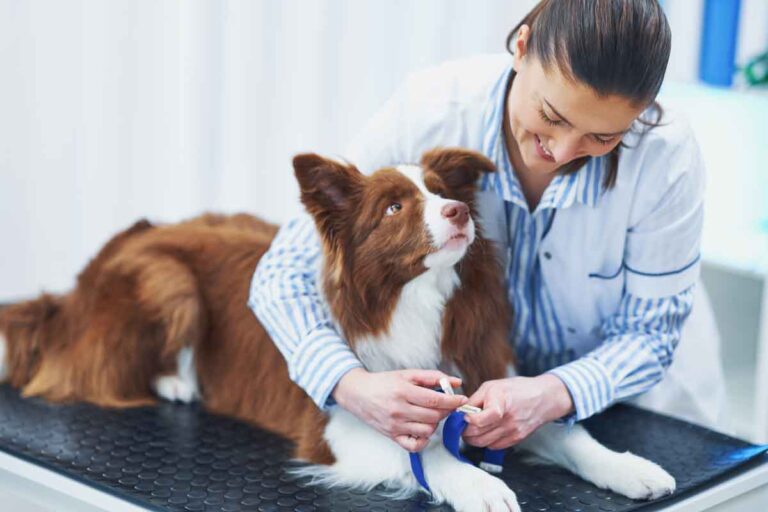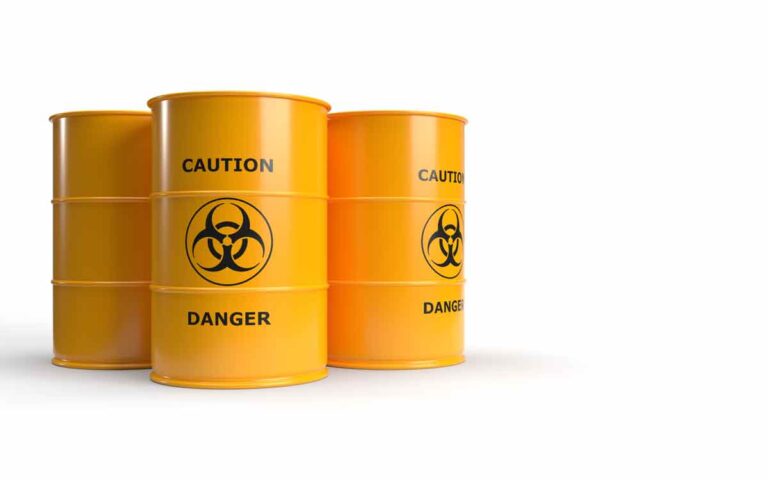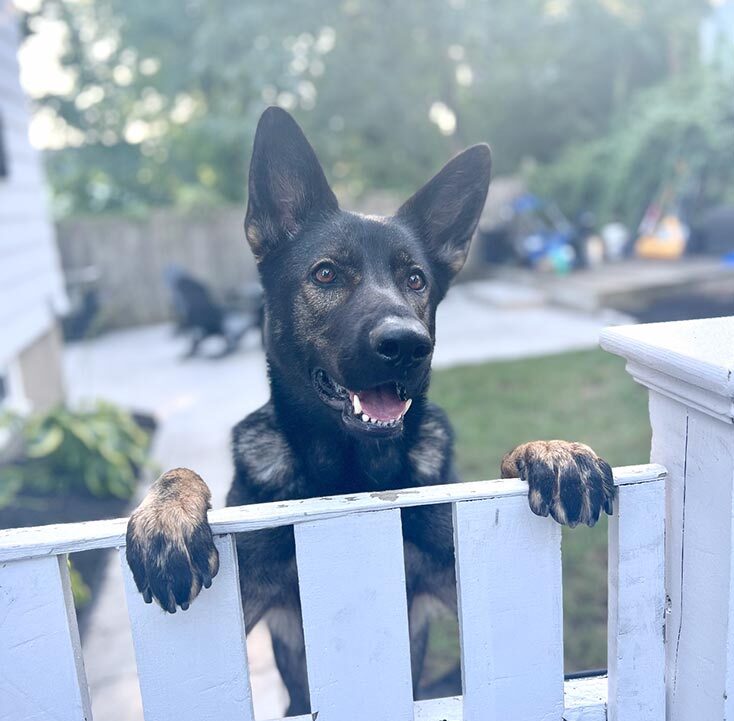When your canine companion suddenly starts acting out of character, and you’re not sure why, there is a decent chance an upset stomach is the culprit. Figuring out why your dog’s stomach is upset is the real challenge.
In this guide, we cover common causes, symptoms, and remedies of dog upset stomachs to get your furry friend back up on all four legs and harassing you to play ball in no time!
As pet parents, there are a few things we need to look out for to make an upset stomach is not a sign of something more serious, which we will also cover here.

Recognizing Your Dog's Upset Stomach
Recognizing the symptoms of an upset stomach in your dog is critical to providing timely and effective care. This can be challenging, however, as a conversation with your dog is typically one-sided. Fortunately, there are a few signs you can look out for.
Changes in eating habits, vomiting, diarrhea, and unusual lethargy are the most common symptoms and may not be worrisome. While your dog occasionally missing a meal, vomiting, or experiencing diarrhea isn’t too much cause for concern, you should always take a mental note and observe your dog more closely.
If your dog repeatedly exhibits any of these symptoms or a combination of them, it may be time to visit the vet.
Common Signs and Symptoms
As mentioned above, don’t go into a full-blown panic if your dog skips a meal or pukes; as a dog owner, you will not be a stranger to these things. Pay close attention to your dog and their behavior over time will help you be able to spot when something is off.
If you think something is out of the ordinary, it’s better to be safe than sorry. Schedule a visit with your vet if your dog continues to have the following symptoms:
- Eating less or refusing food
- Vomiting
- Diarrhea
- Bloating or abdominal swelling
- Excessive drooling or lip-licking
- Lethargy or lack of energy
- Eating grass
An important note: If your dog has a swollen belly or is retching with nothing coming out shortly after they finish eating, your dog could have gastric dilatation and volvulus, also known as GDV.
GDV is a life-threatening condition that can kill a dog in a matter of hours. If you think your dog could have GDV, you must get your dog to a vet immediately. You can read more information on GDV in this article by Veterinary Medical Center.

Assessing the Severity at Home
Monitoring Your Dog's Temperature
Keeping track of your dog’s temperature is important if you suspect something is wrong. Your dog’s temperature should be between 101 and 102.5 degrees Fahrenheit.
Using a rectal thermometer with water-based lubricant is the most reliable way to get your dog’s temperature. Admittedly, this is not the most pleasant activity, but we can guarantee you the dog is having a worse time than you.
As for monitoring your dog’s temperature via its nose; sorry, the cold, wet nose trick is just a myth.
Changes In Behavior To Take Note Of
Your dog’s behavior can tell you a lot about what’s going on with them. Any changes in demeanor, sleeping patterns, or general mood should be considered. Here is a quick list of things to take note of:
- Eating Habits: Any change in your dog’s regular eating habits can be an early sign of illness.
- Water Intake: Drinking too much or too little water could signal something is wrong.
- Activity Level: Changes in everyday activity, either more sluggish or more active than usual, can indicate health issues.
- Bathroom Habits: Constipation, Diarrhea, or changes in urine can be signs something is wrong.
- Grooming Behavior: Excessive licking, biting, or scratching can be signs of allergies, parasites, or skin conditions.
- Barking or Whining: Increased whining could be a sign of discomfort or stomach pain.
- Interaction With Others: If your dog is suddenly more aggressive or withdrawn from other animals or people, it can be a sign something is wrong.
Length And Intensity Of Symptoms
When evaluating your dog’s upset stomach, the length and intensity of your dog’s symptoms can steer you in the right direction.
Severe symptoms like excessive drooling or extreme panting can be indicators that you have a sick dog on your hands. By that same token, if a mild symptom like refusing to eat persists for multiple meals, it could mean your dog has stomach problems.
Learn more about excessive dog panting and when to be concerned.

When To Consult A Vet
As a rule, you should contact your vet immediately if you are concerned about the well-being of your dog. When I was a new dog owner, I was always searching for guidelines to help me determine what was serious and what wasn’t.
Here are a few general guidelines to help determine when to take your dog to the vet. These are meant for informational purposes only and should not be used as a substitute for veterinarian advice.
- Persistent Vomiting or Diarrhea: If your dog has continuously been vomiting or has had diarrhea for more than 24 hours.
- Blood in Vomit or Stool: The presence of blood could be a sign of a more severe condition.
- Lethargy or Unusual Behavior: If your dog is unusually tired, weak, or behaving differently, especially in combination with another symptom.
- Dehydration Symptoms: Signs of dehydration, like dry gums and excessive panting.
- Lack of Appetite: If your dog refuses to eat for more than a day.
- Pain or Discomfort: If your dog shows signs of abdominal pain, discomfort, or bloating.
- Change in Bowel Movements: Significant changes in the frequency, consistency, or appearance of stools.

Causes of a Dog's Upset Stomach
Many things will cause a dog to have an upset stomach. Generally, it comes down to two categories: what they ate, more formally known as ‘dietary indiscretions’ or health-related causes – what’s happening in their body. While it’s usually something they eat, it’s essential to always look for other causes.
Dietary Indiscretions
Overeating or eating too quickly
If you or I eat too much or too fast, it usually leads to an upset stomach. All too often, I’ve left the restaurant loosening my belt or reaching for the Tums, but I digress.
Some dogs are better than others when it comes to eating too much or too fast, but there are a few things you can do to avoid this. Use a measuring cup to portion your pup’s food properly. Feed your dog on a consistent schedule; if your dog knows food is coming, he will be less likely to binge.
If you find your dog eats too quickly all the time, consider getting a slow-feeder bowl. Regular exercise is good for dogs for a million reasons, but it also helps reduce the urge to overeat and maintain a healthy body weight.

Eating Something They Can't Digest Or Something Toxic
Dogs get into things they shouldn’t. While some dogs may instinctually avoid poison, other dogs will lap it up like peanut butter on a spoon. As a pet parent, you need to be vigilant no matter which category your pup falls into.
One of the most common causes for canine upset stomachs? Dogs eat grass. They do this for many reasons, but ironically, one of the main reasons they do it is because they have an upset stomach!
Human food is another thing you need to be very careful with. Some things are okay or good, and others can harm your pup.
The Pet Poison Helpline has a comprehensive list of things that can poison your dog, but here is a quick list of the most common foods, things, and poisons that could be the culprit if your dog has an upset stomach.
- Grass or Plants: Very common.
- Bones or Chews: Sometimes large indigestible pieces can be hard on your pup’s digestive system.
- Garbage or Spoiled Food: Don’t get me started; dogs are scavengers. My dog is a trash panda and even thought she lives for the trash scaps, it goes without saying that dogs shouldn’t eat trash.
- Non-Food Objects: This could be a long, hilarious list of all the things dogs eat, but let’s just say if you see your dog sniffing or licking something they shouldn’t eat, you should discourage them right away. If you don’t, it could lead to a costly vet bill trying to remove your lint roller or waiting for your dog to pass that matchbox car. I hope you have pet insurance.
- Chocolate: Chocolate contains theobromine, which is toxic to dogs.
- Grapes and Raisins: They can cause kidney failure.
- Onions and Garlic: These can lead to anemia.
- Xylitol: Xylitol is found in most sweeteners and is toxic to dogs.
- Alcohol: Even small amounts can be harmful to dogs.
- Caffeine: This can lead to caffeine poisoning.
- Human Medications: Giving your dog human medication is seldom a good idea. NSAIDs can cause stomach ulcers and kidney disease. Tylenol can cause liver failure, and antidepressants and ADD medication can cause seizures and other health risks.
Sudden Changes In Diet
Switching your dog food is another less serious but common reason for a stomach ache. There are many guides on transitioning your dog to a new food, but the idea is to do it gradually over about a week.
Health-Related Causes
All of the following have been known to cause upset stomachs in our canine friends.
- Infections: Viral, Bacterial, or Parasitic
- Parasites: Roundworks or giardia
- Stress or anxiety: Can interrupt healthy digestion
- Food allergies or sensitivities: Like us, dogs can have reactions to certain ingredients.
- Chronic Disease: Inflammatory bowel disease, pancreatitis, kidney or liver disease
A Quick Note: I can tell you from personal experience: don’t rule out motion sickness. It’s very common the first few times you travel with your dog in the car.
Home Remedies for Treating a Dog's Upset Stomach
There are plenty of natural remedies to help a dog with an upset stomach. These solutions can help expedite recovery and get your dog’s digestive system back on track.
Hydration and Fasting
Keeping your dog hydrated is essential, especially if they aren’t feeling well. If your dog won’t drink water, you can feed them ice chips or ice cubes. Most dogs love to play with ice, so sometimes you can trick them into it.
Under vet recommendation, you could also try fasting. Fasting allows for the dog’s digestive tract to reset itself. This will allow your dog’s gut to be repopulated with healthy gut flora. It’s typically a good idea to ease your dog back into eating by feeding them a bland meal.
Bland Diet and Helpful Foods
A dog’s diet is important and even more important if your dog has digestive issues. If your dog has an upset stomach, try simpler foods before returning to everyday dog foods.
- Boiled chicken and white rice: It’s super easy to digest, which can provide a bit of relief. This is also known as the bland diet.
- Pumpkin, mashed carrots, and sweet potatoes: They are high in fiber and can help with diarrhea. You can also buy canned pumpkin, which can sometimes be easier. Make sure you don’t buy pumpkin pie mix or filling.
- Bone broth and boiled eggs: Bone broth is easy to digest and gentle on the stomach.
- Oatmeal: Like sweet potato, oatmeal is another good option for soluble fiber.
Raw Diet
A special mention for the raw diet. It’s expensive and it may not be for every dog, but our dog eats kibble in the morning and a well-balanced raw meal at night.
This is not dissimilar from the large variety of human diets like keto, vegan, carnivore, Mediterranean, etc, in that they are excellent for some people, not others. There isn’t a ton of research to point to in either direction. The raw diet camp claims dogs evolved by eating raw, which can help with digestive issues, energy levels, and healthier skin and coats. Raw diet is not for every dog, but it’s been great for our pup.
Over-the-Counter Medications
Some OTC medications are okay for a dog with an upset stomach, but ONLY under vet supervision. I personally don’t use any unless prescribed by my vet.
- Pepcid-AC: Can reduce stomach acid and help with discomfort.
- Pepto-Bismol: Also helps with discomfort
- Imodium: Good for diarrhea but can be harmful to small breeds and herding breeds.
When to Seek Professional Help
If your dog’s upset stomach isn’t improving with home remedies, knowing when enough is enough is important. Bring your dog to the vet. At this point, you need a proper diagnosis. Your vet will thoroughly evaluate your dog and may order blood tests to pinpoint what’s going on. Here are some signs you need to bring your dog to the vet immediately.
- Persistent Vomiting or Diarrhea: Lasting more than 24 hours.
- Blood in Vomit or Stool: Indicates internal bleeding or other serious conditions.
- Lethargy or Weakness: Sign of a more severe illness.
- Changes in Thirst or Urination: Could indicate kidney or liver issues.
- Unusual Abdominal Pain or Swelling: This could be a sign of serious digestive problems.
- Refusal to Eat or Drink: For more than a day, as it can lead to dehydration and other complications.
It’s better to be safe than sorry. When in doubt, bring your dog to the vet. It could save your dog’s life, but at the very least, it will provide you with peace of mind.
Conclusion
If your furry friend has an upset stomach, don’t fret. There are plenty of not-so-serious reasons for it. The key is to ensure you are aware and prepared to correctly identify when it IS serious. Feed your dog a healthy diet, make sure they get plenty of water and exercise, and watch them like a hawk so they don’t eat drywall. This will help your pup prevent all sorts of digestive discomfort. When it does happen, look back to the items on this list to help your pooch recover quickly!
Sometimes, the best way to settle their stomach is actually skipping a meal. You can also try slippery elm bark, ginger, or basic foods like boiled chicken and rice.
It’s generally safe to do so, but you should consult your vet first.
They should drink plenty of water and eat really basic foods like chicken and rice or bone broth.
Slippery elm bark and ginger are known to be good natural remedies.
The bland diet, pumpkin, oatmeal, mashed carrots, and plenty of water can be helpful.
It depends, but if it lasts more than a day or two, you should bring your dog to the vet.
Fasting is a great way to help ‘reset’ your dog’s stomach.




